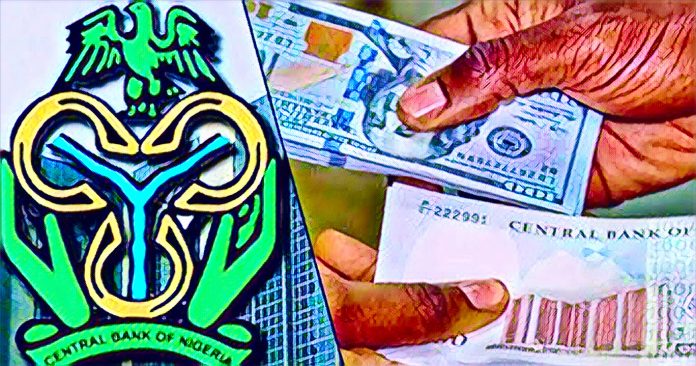The Central Bank of Nigeria (CBN) has conducted a significant retail foreign exchange auction, selling $876.26 million at a rate of N1,495 per dollar. This move is part of the CBN’s ongoing efforts to stabilize the Nigerian naira, which has faced considerable pressure in recent months due to a combination of domestic and international economic challenges.
The retail forex auction targets the retail segment of the market, which includes small businesses, importers, and individuals. These participants rely heavily on access to foreign currency to conduct their operations, particularly in a country where a significant portion of goods are imported. The CBN’s intervention is seen as crucial in ensuring that these essential players in the economy can obtain the foreign currency they need at a relatively stable rate.
The N1,495 per dollar rate at which the CBN sold the forex is reflective of the prevailing exchange rate in the retail market. However, the Nigerian naira has experienced significant fluctuations, with the rate varying considerably between the official and parallel markets. This gap has been a point of concern for economists and businesses alike, as it creates uncertainty and complicates financial planning.
The forex auction by the CBN is one of several tools the central bank employs to manage the country’s foreign exchange reserves and maintain the stability of the naira. By increasing the supply of dollars in the market, the CBN aims to curb the excess demand that often drives up the value of the dollar against the naira, leading to depreciation.
Nigeria’s economy, heavily reliant on oil exports, has been under strain due to declining oil revenues and other global economic factors. The reduction in oil prices has led to lower foreign exchange earnings, which in turn has put pressure on the naira. Additionally, high inflation rates have eroded consumer purchasing power, making imported goods more expensive and further increasing the demand for foreign currency.
The CBN’s intervention is also aimed at preventing speculative activities that could exacerbate the naira’s volatility. By ensuring that sufficient foreign currency is available to meet legitimate demand, the central bank hopes to reduce the incentive for speculators to hoard dollars or engage in activities that could destabilize the market further.
Despite these efforts, the challenges facing the naira are far from over. The gap between the official exchange rate and the parallel market rate remains a significant issue. While the official rate at the CBN’s auction was N1,495 per dollar, rates in the parallel market have been reported to be much higher. This discrepancy creates an environment where businesses and individuals are often forced to turn to the parallel market, driving up demand and widening the exchange rate gap.
To address these concerns, some market analysts have called for a more unified exchange rate system. A unified rate could help to reduce the distortions caused by the current multiple exchange rate regime and provide greater transparency and predictability in the forex market. However, achieving such a system would require careful management of the country’s foreign exchange reserves and a balancing act between market forces and regulatory oversight.
The CBN’s ongoing interventions, including the recent $876.26 million auction, underscore its commitment to stabilizing the naira and supporting the Nigerian economy through a challenging period. However, these efforts are just one piece of the broader economic puzzle that includes tackling inflation, boosting domestic production, and diversifying the economy away from oil dependency.
As Nigeria navigates these economic challenges, the role of the CBN in managing the forex market will remain critical. The success of its interventions will depend on its ability to maintain a stable supply of foreign currency, manage demand pressures, and foster confidence in the naira.
Looking ahead, the CBN is likely to continue its proactive approach in the forex market, with further auctions and interventions expected as part of its broader monetary policy strategy. The central bank’s actions will be closely watched by market participants, who will be hoping for signs of stability and a narrowing of the gap between official and parallel market rates.
Ultimately, the future of the naira will depend on a combination of effective monetary policy, economic reforms, and the broader global economic environment. With continued efforts from the CBN and the government, there is hope that the naira can regain its strength and that Nigeria’s economy can emerge more resilient from its current challenges.
Source: BusinessDay



